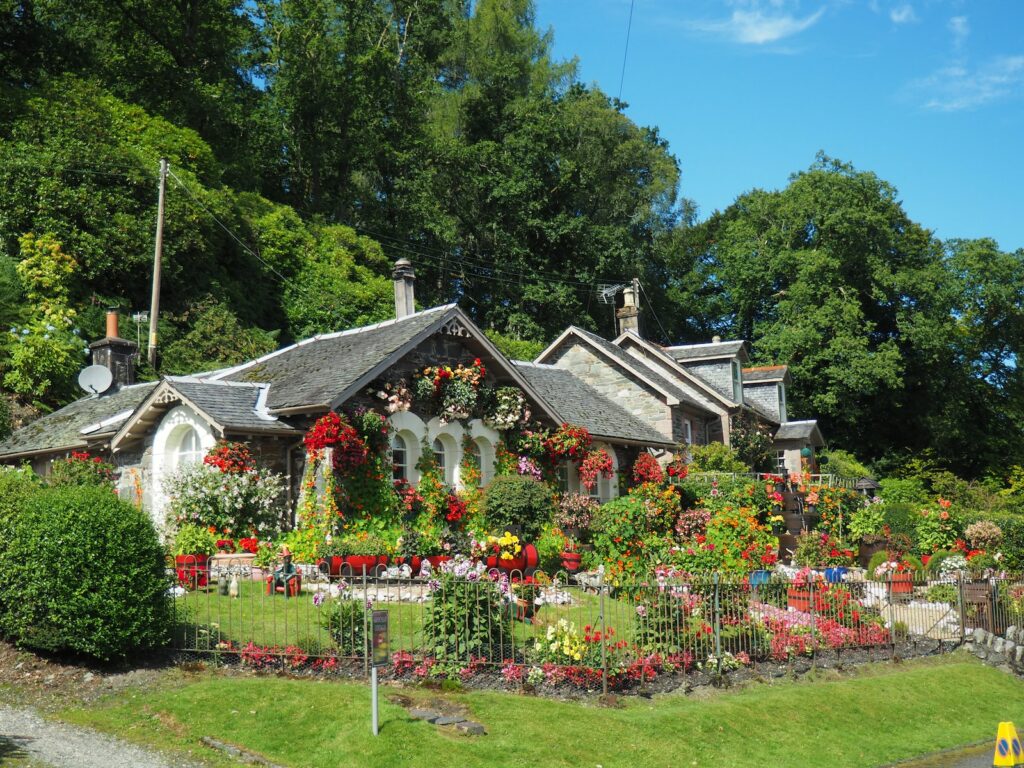When stepping into the vibrant world of gardening, there’s a quintessential debate that every green thumb encounters: rock or mulch for landscaping! It’s akin to choosing the background music for an epic movie. Both options come with their set of pros and cons, and the decision can influence the health of your garden, the look of your outdoor space, and even your maintenance routine. Strap in, let’s dig deeper into this landscaping conundrum.
The Basics: Understanding Rock and Mulch
Embarking on the landscaping journey, one might quickly encounter a crossroad: rock or mulch? Before we delve into the intricacies and weave through the pros and cons of each, it’s paramount to get acquainted with our two contenders.
These aren’t just ordinary components of landscaping; they play pivotal roles in shaping the aesthetics, health, and functionality of your outdoor sanctuary. So, let’s pull back the curtains and introduce the stars of the show.
Meet Rock: The Sturdy Showstopper
Ah, the rock! It’s the stoic sentinel of the landscaping world. There’s more to these little (or large) gems than meets the eye:
- Varieties Galore: From pebbles to boulders, granite to river rock, the choices are vast.
- Aesthetic Flexibility: Rocks offer a palette of colors, lending versatility to landscaping designs.
- Staying Power: Rocks don’t fade with time, retaining their color and form for years.
Say Hello to Mulch: The Natural Nurturer
Mulch is like the comfort food of the landscaping universe. Warm, protective, and incredibly nurturing:
- Types of Mulch: From wood chips, straw, to cocoa bean shells, there’s a mulch for every garden.
- Color Spectrum: Mulches can range from dark, rich browns to vibrant reds.
- Decomposition Benefits: As it decomposes, it becomes a source of nutrition for the soil.
Benefits of Rock in Landscaping
Beyond the apparent perks, rocks have several under-the-surface advantages:
- Water Efficiency: In arid regions, rocks can reduce water evaporation from the soil.
- Pest Control: Unlike organic mulches, rocks don’t attract pests.
- Erosion Prevention: Rocks can prevent soil erosion in areas exposed to water runoff.
Advantages of Using Mulch
Mulch isn’t just a pretty face. Its benefits extend deep into the soil:
- Weed Control: A good layer of mulch can prevent weeds from sprouting.
- Soil Aeration: As mulch breaks down, it can help aerate the soil, crucial for root health.
- Protection: Mulch acts as a cushion, reducing soil compaction from heavy rains.
Considerations When Choosing Between Rock and Mulch
When torn between rock and mulch for landscaping, several critical factors come into play.
Garden Health
Mulch often takes the crown among avid gardeners, especially those with plants that thrive on rich nutrients. It decomposes over time, enriching the soil with essential organic matter that promotes plant growth.
On the other hand, rock is the go-to for areas intended more for decorative aesthetics or for those cultivating drought-resistant plants. Rocks also help in weed prevention, ensuring that unwanted guests don’t invade your beautifully curated space. Thus, your choice between mulch and rock should reflect your garden’s specific needs and your long-term maintenance plans.
Maintenance
When it comes to upkeep, mulch requires a bit more attention. It might need replacement or replenishing every couple of years, especially as it decomposes and integrates into the soil. On the flip side, rock offers a more hands-off approach.
Once laid, it remains mostly maintenance-free, although it does benefit from occasional cleaning or resetting to keep its fresh appearance. Deciding between the two means weighing the benefits of natural soil enrichment versus the allure of a low-maintenance garden.
Environmental Impact
When considering the environment, the choices we make for our gardens have broader implications. Opting for locally sourced rocks or mulches not only supports local businesses but also significantly reduces the carbon footprint associated with long-distance transportation of these materials.
By making eco-friendly choices in our landscaping materials, we’re taking a step forward in promoting sustainability and reducing our overall environmental impact. It’s a win-win for both the planet and the aesthetic appeal of our outdoor spaces.
Rock and Mulch: The Harmonious Blend
It’s a common misconception to believe we have to choose one over the other. But guess what? There’s a secret third option that most overlook: harmoniously integrating both rock and mulch into your landscape design!
Imagine a meandering rocky pathway flanked by mulched flower beds, combining the best of both worlds. This approach not only adds layers of texture and contrast to your garden but can also be both functional and visually stunning, proving that sometimes, the magic lies in the blend.
The Verdict: Rock or Mulch?
When it comes to choosing between rock and mulch, there isn’t a one-size-fits-all answer. The ultimate decision hinges on various factors including personal aesthetic preferences, specific garden requirements, and your future landscaping visions. Ask yourself: Do you envision your garden as a serene, low-maintenance sanctuary or a lively space brimming with diverse plant life? Each material has its merits, so it’s about finding the right fit for your unique outdoor space.
Conclusion: Rock Or Mulch For Landscaping
Choosing between rock or mulch for landscaping is like deciding between coffee and tea. Both have their unique flavors and benefits. The key is to understand what your garden craves and what you, as its caretaker, envision.
FAQs
1. Do rocks increase soil temperature?
Yes, dark-colored rocks can absorb heat and may raise the soil temperature.
2. Can mulch attract termites?
Wood mulch, if placed close to a home’s foundation, can attract termites. It’s essential to maintain a gap.
3. How often should I replace mulch?
Typically, organic mulch needs replenishing every 1-2 years.
4. Do rocks help in drainage?
Yes, rocks, especially in layers beneath the soil, can aid in drainage.
5. Which is more cost-effective in the long run, rock or mulch?
While rocks might have a higher upfront cost, they don’t need regular replacement, making them cost-effective in the long run.


